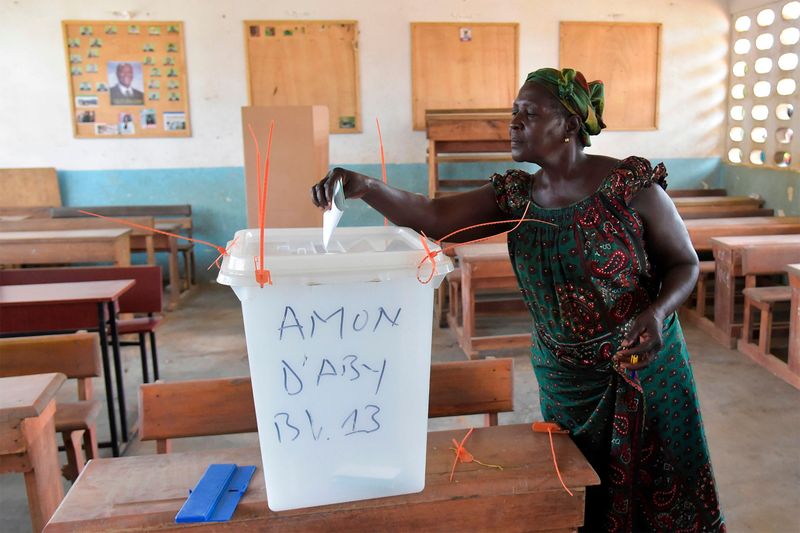
A woman cats her vote in Ivory Coast’s regional and municipal elections at a polling station in Abidjan’s central business district of Plateau on Oct. 13, 2018. ( Photographer: Sia Kambou/AFP via Getty Images
Ivory Coast President Alassane Ouattara’s ruling alliance won a majority in local elections that were contested by its former coalition partner as political divisions in the world’s biggest cocoa grower widen ahead of a 2020 presidential vote.
Ouattara’s Rally of Houphouetists for Democracy and Peace took 92 municipalities in the Oct. 13 election, the electoral commission said in a statement Tuesday. Independent candidates got 56 municipalities, the commission said. The Democratic Party of Ivory Coast, which ruled the country for almost four decades until its leader, then-President Henri Konan Bedie, was ousted in a 1999 coup, obtained 50 municipalities.
The results show that the PDCI is still a significant political force, having won several key municipalities including the business district in the commercial capital, Abidjan, said Ousmane Zina, a political analyst at the Alassane Ouattara University in Bouake.
— With assistance by Baudelaire Mieu

